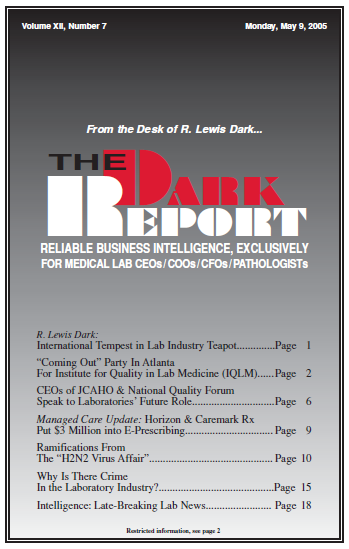Tight-lipped executives at Meridian Bioscience, Inc. have yet to speak in public on any aspect of how live H2N2 influenza virus found its way into the virology proficiency test kits it shipped to thousands of labs on behalf of four lab proficiency testing organizations. Meridian, based in Cincinnati, Ohio, may be reluctant to speak publicly …
“May 9, 2005 Intelligence: Late Breaking Lab News” Read More »
To access this post, you must purchase The Dark Report.


